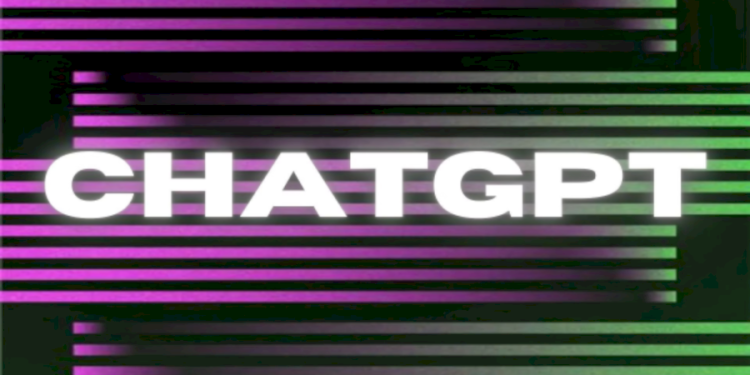Ada, a Toronto-based firm that automates 4.5 billion customer support encounters, has now teamed up with OpenAI to leverage GPT-3.5, the big language model that forms the basis of ChatGPT, to enhance the usefulness of these customer service chatbots. Ada, a company that was established in 2016, creates chatbots that can do jobs like booking a flight for a user of AirAsia or monitoring orders and returns for Meta’s virtual reality devices.
However, experts claim that customer service automation is one industry that was already using some of what ChatGPT offers, despite the fact that users have utilised ChatGPT’s models for a broad variety of unique uses, like writing emails and seeking mental health assistance. In the customer service sector, where a slew of firms, including Zoho and Levity AI, have developed sophisticated bots and voice assistants to help businesses save time and money on customer contacts, AI has been thriving. However, these bots also cause friction and annoyance for customers.
At its foundation, ChatGPT is generative and constructs totally new phrases for each inquiry you ask it. This isn’t always what a business wants when clients ask questions.
“ChatGPT is excellent for creating new ideas that don’t adhere to a predetermined script. It encourages creativity. Ajay Agarwal, a professor at the University of Toronto whose research focuses on the economics of AI, tells Forbes that while it’s wonderful for asking a variety of questions, you can never be sure of the answer. And businesses would never want that as their customer service office’s response, he continues.
The roughly 30% of customer inquiries that are repetitive in nature and require consistent answers that can be handled by existing automation may not be able to be improved upon by ChatGPT models. The most frequent queries include “Where is my package? What is the number on my order? What is my passphrase? Mike Murchison, the CEO of Ada, says.
However, Murchison claims he wants to take advantage of OpenAI’s expansive language models to deal with the roughly 70% of customer support communications that are complex and could use a conversational, strong, and intelligent bot. According to him, the collaboration will enable Ada to better train its chatbot to recognise a customer’s intent, come up with its own solutions, and enhance the precision and calibre of responses.
Mike Murchison, the CEO and co-founder of Ada, told Forbes that the company and OpenAI had a similar investor, but he did not provide any additional information on the investor. He also declined to comment on the financial terms of Ada’s partnership with OpenAI.
Ada’s chatbots are accessible on WeChat, WhatsApp, Facebook Messenger, and business websites and are supported by $200 million from investors including Accel, Bessemer, Spark, Tiger Global, and FirstMark. To describe a firm’s products, services, and customer service concerns, as well as sensitive material like transcripts of interactions between human agents and consumers and confidential customer data, the corporation started using massive language models in 2019. (Ada anonymizes the information before using it).
Before transferring a ticket to a human agent, the company is also employing OpenAI’s models to summarise talks between a bot and a consumer, according to Murchison. Its bots can also perform tasks that people are unable to, such as processing refunds without human intervention when doing so requires numerous layers of permission. He responds, “Our bots are authorised to automate a refund for you. “We can get data from a place that’s actually incredibly difficult for a human to access. We can tap into a corporate system and conduct a complicated workflow.”
Big tech businesses, who have their own versions of advanced AI, pose a danger to Ada’s market share (Google researchers, for instance, have made similar breakthroughs). According to a story from The Information, Microsoft also has an exclusive licencing agreement with OpenAI and intends to integrate the technology into its Bing search engine. According to AI angel investor Geoff Renaud, these businesses benefit from their access to large amounts of data. “The faster AI develops, the more data there is. “They become an obvious winner if you start processing it like an Amazon that has more volume of data than anyone else,” adds Renaud.
For customer service, ChatGPT poses one significant risk: According to AI angel investor Geoff Renaud, who has experience working with generative AI businesses, a skilled conversational chatbot may also expose users to scams. Because you can copy anyone, it “opens a Pandora’s box for con artists,” he claims. “There is a lot of potential and excitement, but misinformation and frauds can cause things to quickly turn bad. There are others who are developing standards, but technology will advance too quickly for them to keep up.
Pre-emptive inquiries have been incorporated into Murchison and his co-founder David Hariri’s chatbots to solve these problems and keep the conversation organised and on topic. We help the consumer ask specific questions, and we’re also skilled at steering them away from a topic and toward something that is more about customer service, according to the man.
Customers don’t want to speak with a stupid bot that is unable to comprehend simple questions, according to two-time entrepreneur Murchison. He aims to develop technology that would enable customer care chatbots to perform increasingly challenging tasks while seeming more natural. He claims that working with OpenAI will help move the goalposts in that direction. Given how quickly everything is evolving and how interesting the research that we are creating and what OpenAI is producing, he says, “I kind of feel like a kid in a candy shop right now.”









